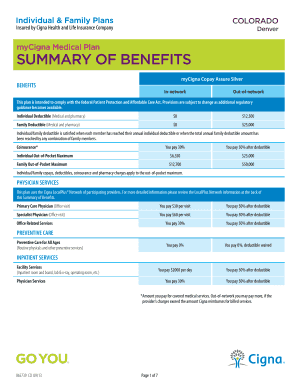*Patient Eligibility & Terms and Conditions: Patients are not eligible for copay assistance through IPSEN CARES® if they are enrolled in any state or federally funded programs for which drug prescriptions or coverage could be paid in part or in full, including, but not limited to, Medicare Part B, Medicare Part D, Medicaid, Medigap, VA, DoD, or TRICARE (collectively, “Government Programs”), or where prohibited by law. Patients residing in Massachusetts, Minnesota, Michigan, or Rhode Island can only receive assistance with the cost of Ipsen products but not the cost of related medical services (injection). Patients receiving assistance through another assistance program or foundation, free trial, or other similar offer or program, are not eligible for the copay assistance program during the current enrollment year.

Cash-pay patients are eligible to participate. “Cash-pay” patients are defined for purposes of this program as patients without insurance coverage or who have commercial insurance that does not cover Somatuline® Depot. Medicare Part D enrollees who are in the prescription drug coverage gap (the “donut hole”) are not considered cash-pay patients and are not eligible for copay assistance through IPSEN CARES®. For patients with commercial insurance who are not considered to be cash-pay patients, the maximum copay benefit amount per prescription is an amount equal to the difference between the annual maximum copay benefit of $20,000 and the total amount of copay benefit provided to the patient in the Somatuline® Depot Copay Program. For cash-pay patients, the maximum copay benefit amount per prescription is $1,666.66, subject to the annual maximum of $20,000 in total. Patient pays any amount greater than the maximum copay savings amount per prescription.
The Trump administration will not enforce its copay accumulator plan for 2020 Affordable Care Act plans amid confusion from stakeholders about the policy.
Patient or guardian is responsible for reporting receipt of copay savings benefit to any insurer, health plan, or other third party who pays for or reimburses any part of the prescription filled through the program, as may be required. Additionally, patients may not submit any benefit provided by this program for reimbursement through a Flexible Spending Account, Health Savings Account, or Health Reimbursement Account. Ipsen reserves the right to rescind, revoke, or amend these offers without notice at any time. Ipsen and/or RxCrossroads by McKesson, are not responsible for any transactions processed under this program where Medicaid, Medicare, or Medigap payment in part or full has been applied. Data related to patient participation may be collected, analyzed, and shared with Ipsen for market research and other purposes related to assessing the program. Data shared with Ipsen will be de-identified, meaning it will not identify the patient. Void outside of the United States and its territories or where prohibited by law, taxed, or restricted. This program is not health insurance. No other purchase is necessary.
What Is Covered In The Cares Act
The Coronavirus Aid, Relief, and Economic Security Act, also known as the CARES Act, is a $2.2 trillion economic stimulus bill passed by the 116th U.S. Congress and signed into law by President Donald Trump on March 27, 2020, in response to the economic fallout of the COVID-19 pandemic in the United States. The spending primarily includes $300 billion in one-time cash payments to individual. The CARES Act amends FFCRA to expand the in vitro diagnostic tests that must be covered by group health plans. Under the CARES Act and FFCRA, group health plans must cover the following items without any cost-sharing (deductibles, copayments, and coinsurance) or medical management, such as prior authorization.
